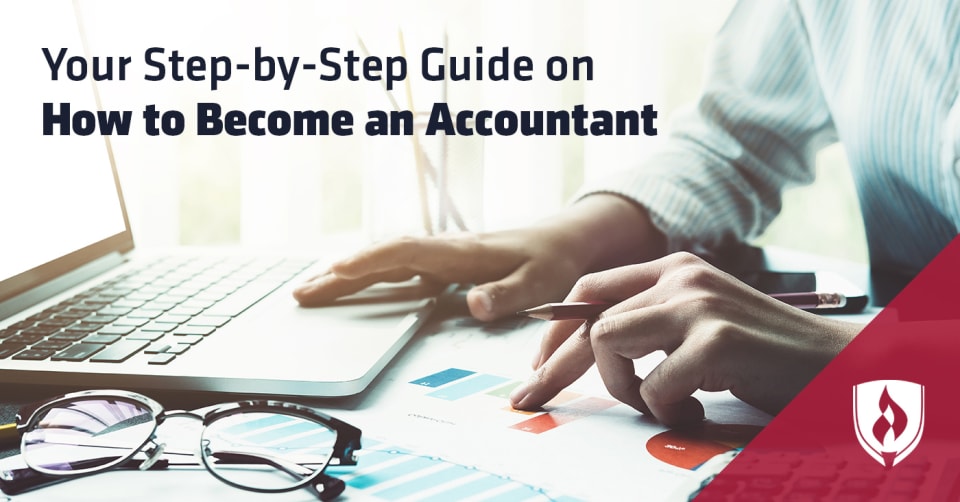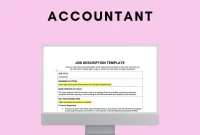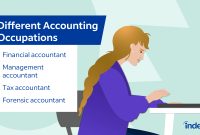Before diving into the steps, it’s crucial to understand what accountants do. Accountants are responsible for preparing financial records, ensuring their accuracy, and helping businesses or individuals manage their finances. They analyze financial data, prepare tax returns, and offer advice on financial matters.
Key Responsibilities of Accountants
Accountants play a pivotal role in the financial health of an organization. They ensure that financial records are accurate and compliant with laws and regulations. Their responsibilities often include preparing balance sheets, profit and loss statements, and other reports that summarize the company’s current and projected financial position.
Skills Required for Accountants
To excel in accounting, certain skills are essential. Analytical thinking, attention to detail, and proficiency in mathematics are crucial. Accountants must also be adept with accounting software and possess strong communication skills to effectively convey financial information to non-financial stakeholders.
Different Types of Accountants
The accounting profession offers various career paths. Public accountants work for accounting firms, providing auditing, tax, and consulting services. Management accountants are employed by companies to manage financial records and budgets. Government accountants work in the public sector, while internal auditors ensure compliance and risk management within organizations.
Step 1: Obtain a High School Diploma
The first step towards becoming an accountant is earning a high school diploma or an equivalent qualification. Focus on courses like mathematics, economics, and business studies, as they lay a strong foundation for your future studies in accounting.
Importance of High School Education
A solid high school education is vital as it develops critical thinking and problem-solving skills. Engaging in subjects like math and economics helps you understand the basics of financial principles, which are fundamental in accounting.
Recommended High School Courses
While in high school, prioritize courses that enhance your understanding of numbers and finance. Mathematics, particularly algebra and statistics, are essential. Business studies can introduce you to basic accounting concepts, while economics provides a broader understanding of financial systems.
Extracurricular Activities and Clubs
Participating in extracurricular activities related to finance can be beneficial. Joining a business club or participating in a math league can enhance your understanding of accounting concepts and help you develop relevant skills. These activities also look good on college applications.
Step 2: Pursue a Bachelor’s Degree in Accounting
To become an accountant, you’ll need at least a bachelor’s degree in accounting or a related field. Look for accredited programs that offer courses in financial accounting, managerial accounting, taxation, and auditing.
Choosing the Right Program
Selecting an accredited accounting program is crucial. Ensure the program you choose is recognized by relevant professional bodies and offers a comprehensive curriculum covering essential accounting principles and practices.
Enrolling in Relevant Courses
While pursuing your degree, enroll in courses that cover essential topics such as financial statement analysis, cost accounting, and accounting information systems. These courses will equip you with the necessary knowledge and skills.
Importance of Accreditation
Accreditation ensures that the education you receive meets certain standards of quality. Accredited programs are more likely to be recognized by employers and professional organizations, which can be crucial for certification and career advancement.
Step 3: Consider an Internship
Gaining practical experience through an internship can be invaluable. It provides you with hands-on experience, exposes you to real-world accounting scenarios, and helps you build a professional network. Many companies offer internship programs to accounting students.
Benefits of Internships
Internships offer a glimpse into the real-world applications of accounting principles. They allow you to apply classroom knowledge to actual business situations, which can enhance your understanding and confidence in the field.
Finding the Right Internship
Seek internships that align with your career goals. Consider the size and type of company, the industry they operate in, and the specific accounting functions they focus on. Networking with professors and attending career fairs can help you find suitable opportunities.
Making the Most of Your Internship
To maximize the benefits of your internship, actively engage in tasks and seek feedback from supervisors. Building relationships with colleagues can lead to mentorship opportunities and future job offers. Document your achievements and experiences to bolster your resume.
Step 4: Obtain Accounting Certifications
Certifications can significantly enhance your career prospects in accounting. They not only validate your expertise but also open doors to higher-level positions and increased earning potential.
Certified Public Accountant (CPA)
One of the most recognized accounting certifications is the Certified Public Accountant (CPA) designation. To become a CPA, you need to meet the CPA requirements, which typically include a bachelor’s degree, passing the CPA exam, and gaining relevant work experience.
Certified Management Accountant (CMA)
The CMA certification focuses on financial management and strategic planning. It is ideal for those looking to work in corporate finance or management accounting. The CMA requires passing two exams and having a bachelor’s degree and relevant work experience.
Other Accounting Certifications
Besides the CPA, consider pursuing other accounting certifications such as Certified Internal Auditor (CIA), Chartered Financial Analyst (CFA), or Certified Fraud Examiner (CFE). These certifications can enhance your credibility and open up more career opportunities.
Step 5: Gain Work Experience
After obtaining your degree and certifications, it’s time to gain work experience. Entry-level positions such as staff accountant, junior auditor, or financial analyst are common starting points. These roles allow you to apply your knowledge and develop your skills further.
Entry-Level Job Opportunities
Look for entry-level positions that offer growth and learning opportunities. Positions like staff accountant, tax associate, and audit assistant are excellent starting points to gain comprehensive experience in accounting practices.
Building Professional Skills
Work experience allows you to build essential professional skills such as time management, teamwork, and problem-solving. Engage in projects that challenge you and seek opportunities to lead tasks or teams.
Career Growth and Development
As you gain experience, seek feedback and continue to learn. Pursue additional responsibilities or complex projects to demonstrate your capabilities. This proactive approach can lead to promotions and increased responsibilities over time.
Step 6: Stay Updated with Continuing Education
The accounting field is constantly evolving, with new regulations and technologies. Staying updated through continuing education is crucial to maintaining your skills and knowledge. Attend workshops, seminars, and online courses to keep abreast of industry changes.
Importance of Lifelong Learning
Continuous education ensures you remain competitive in the dynamic accounting field. It keeps you informed about changes in tax laws, accounting standards, and technological advancements, ensuring your skills remain relevant.
Available Learning Opportunities
Numerous resources are available for continuing education. Online courses, webinars, and workshops offer flexibility and variety. Professional organizations often provide training sessions and seminars that focus on current trends and best practices.
Incorporating New Technologies
Technological advancements are reshaping accounting practices. Familiarize yourself with accounting software and tools that can enhance efficiency and accuracy. Learning about emerging technologies like blockchain or AI can also be beneficial.
Step 7: Explore Specializations
As you progress in your career, consider specializing in areas like forensic accounting, tax accounting, or management accounting. Specializing can make you more marketable and lead to higher earning potential.
Forensic Accounting
Forensic accountants investigate financial discrepancies and fraud. They work closely with law enforcement agencies and may be called upon to testify in court. This specialization requires keen analytical skills and attention to detail.
Tax Accounting
Tax accountants focus on tax-related matters, helping individuals and businesses comply with tax laws and optimize their tax obligations. They stay updated on tax legislation and offer strategic tax planning advice to minimize liabilities.
Management Accounting
Management accountants provide financial insights to help organizations make informed business decisions. They focus on budgeting, performance evaluation, and cost management. This role requires strong analytical skills and an understanding of business operations.
Step 8: Network with Professionals
Networking is essential for career growth. Join professional organizations like the American Institute of CPAs (AICPA) or attend industry events to connect with other accounting professionals. Networking can lead to job opportunities and valuable industry insights.
Benefits of Networking
Networking allows you to exchange knowledge and experiences with peers. It can lead to job referrals, mentorship opportunities, and collaborations. Building a strong network is invaluable for career advancement and staying informed about industry trends.
Professional Organizations
Joining professional organizations offers numerous benefits. They provide access to resources, training, and certification opportunities. Organizations like AICPA or the Institute of Management Accountants (IMA) offer networking events and educational workshops.
Effective Networking Strategies
To network effectively, attend industry conferences, seminars, and workshops. Engage with professionals on platforms like LinkedIn and participate in discussions. Building genuine relationships and offering to help others can enhance your networking efforts.
Step 9: Advance Your Career
With experience and a solid professional network, you can advance your career by pursuing roles like senior accountant, accounting manager, or chief financial officer (CFO). Consider pursuing an advanced degree, such as a Master of Accountancy (MAcc) or a Master of Business Administration (MBA), to further enhance your qualifications.
Pursuing Advanced Roles
As you gain experience, aim for senior positions like senior accountant, financial analyst, or audit manager. These roles come with greater responsibilities and require a deep understanding of accounting principles and leadership skills.
Benefits of Advanced Degrees
Advanced degrees such as a Master of Accountancy or an MBA can provide a competitive edge. They offer specialized knowledge and can enhance your strategic and managerial skills, making you a strong candidate for executive roles.
Setting Career Goals
Setting clear career goals is crucial for advancement. Identify the roles you aspire to and the skills or qualifications needed. Develop a plan to achieve these goals, including gaining experience, pursuing additional education, and expanding your network.
Conclusion
Becoming an accountant requires dedication and a commitment to lifelong learning. By following these steps, you can build a successful career in accounting. Focus on obtaining the necessary qualifications, gaining practical experience, and continuously updating your skills to stay competitive in this dynamic field. With determination and hard work, you can achieve your goal of becoming a respected accountant.



